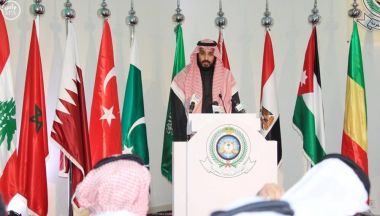Saudi Arabia's 34-nation military coalition plan to combat terror sparks confusion

While Western nations welcomed the new 34-nation military alliance formed by Saudi Arabia, some countries, including even key members of the Saudi-led coalition, have expressed confusion and were not as enthusiastic to be part of the team that purportedly seeks to combat terrorism in the region.
Lebanon claimed to have read about their involvement in a Reuters news story. Pakistan was reportedly surprised by its inclusion, with Pakistani officials summoning the Saudi ambassador to try to get some clarification.
Indonesia also expressed confusion on why it was included in the coalition when it has not yet agreed to join the alliance, according to reports.
Pakistani officials said this is the second time the Saudis included them in a military coalition this year without asking them first. Previously, they were named part of the Saudi-led coalition against Yemeni rebels even if they were never involved in the military campaign.
Indonesian officials said they were told by the Saudis that the kingdom is forming some sort of an anti-terror coordination programme for intelligence sharing—not a military alliance, which they are not interested in joining.
Other countries have also made remarks about Saudi Arabia's intention in forming the alliance, the lack of preparation by Riyadh on the programme and the uncertainty over how the new alliance will work, newspaper reports said.
"We look forward to learning more about what Saudi Arabia has in mind in terms of this coalition," U.S. Defense Secretary Ash Carter said on Tuesday.
Saudi Arabia initially announced the establishment of the 34-nation coalition in the state-run Saudi Press Agency wherein they referred to the Kingdom's duty "to protect Islamic nations from the evils of all terrorist groups and organisations, whatever their sect and name, that wreak death and corruption on earth and aim to terrorise the innocent.''
The statement said Islam forbids "corruption and destruction in the world" and that terrorism constitutes "a serious violation of human dignity and rights, especially the right to life and the right to security."
Saudi Defence Minister and Deputy Crown Prince Mohammed bin Salman told a media conference later that the new coalition he described as "Islamic military coalition'' would confront not only the Islamic State (ISIS) but "any terrorist organisation that appears in front of us.''
He painted the coalition as a grouping that would allow member states to request or offer assistance among themselves in fighting groups they designate as terrorists.
Saudi officials also clarified any relation between the Islamic coalition and the U.S.-led coalition fighting the ISIS, adding theirs will not be limited to military operations online but will include strategic solutions.
The 34-state coalition includes countries from the Gulf states, some African countries, Turkey, Egypt, Pakistan and Malaysia.
Iran, Saudi Arabia's regional rival, is not part of the alliance. The two countries support opposite sides in the wars raging in Syria and Yemen. The Kingdom is currently leading a military intervention in Yemen against Shiite Houthi rebels and is also part of the U.S.-led coalition bombing the Sunni extremist ISIS in Iraq and Syria.
Iraq and Syria, whose forces are fighting to regain territory taken by ISIS and whose governments are allied with Iran, are not in the included in the Saudi-led coalition.











